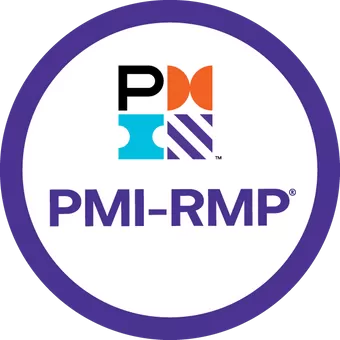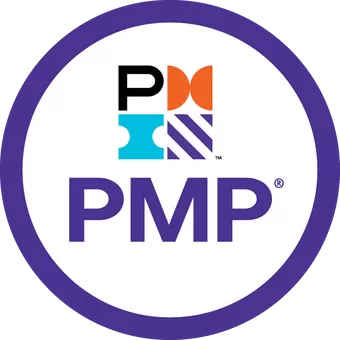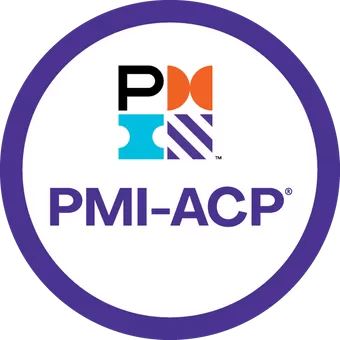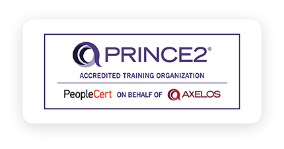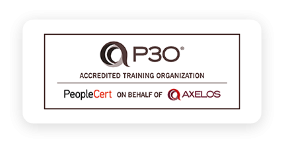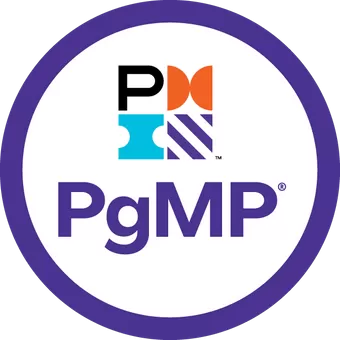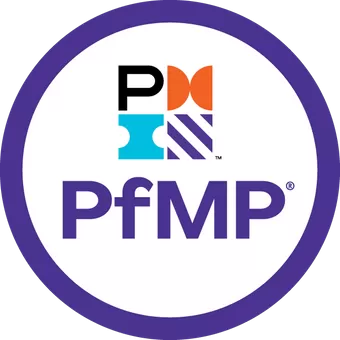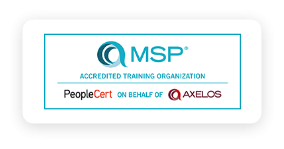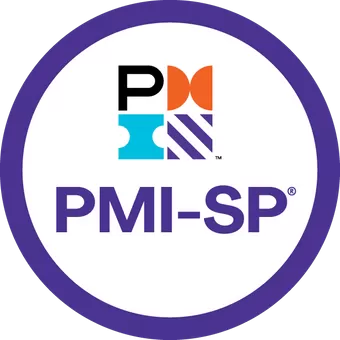
Is Project Management a Good Career? Exploring Advantages, Opportunities, and Challenges
Written By : Bakkah
28 May 2024
Project management is a field that sits at the intersection of organization, leadership, and strategy. It's a profession that demands a unique blend of skills, ranging from communication and problem-solving to time management and stakeholder engagement.
But is project management a good career choice? In this article, we'll delve into the various aspects of project management as a career, examining its opportunities, challenges, and potential for growth.
Why Study Project Management?
Studying project management opens doors to a world of opportunities and invaluable skills. Whether you're aspiring to lead large-scale projects or seeking to enhance your organizational abilities, delving into project management offers numerous benefits. Here are some compelling reasons to consider studying project management:
1. Versatility
Project management skills are transferable across industries and sectors, providing you with the flexibility to pursue diverse career paths. From IT to healthcare, construction to finance, project management expertise is in demand across various fields.
2. Career Advancement
Acquiring proficiency in project management can accelerate your career growth and open doors to higher-level roles with increased responsibilities and rewards. Employers value professionals who can effectively plan, execute, and oversee projects from inception to completion.
3. Enhanced Leadership Abilities
Studying project management cultivates essential leadership skills, such as communication, decision-making, and conflict resolution. You'll learn how to motivate teams, manage stakeholders, and navigate complex challenges with confidence and composure.
4. Improved Organizational Efficiency
Project management methodologies and best practices empower you to streamline processes, optimize resource utilization, and improve overall organizational efficiency. By mastering project management principles, you can drive operational excellence and deliver results that exceed expectations.
5. Global Relevance
In an increasingly interconnected world, project management transcends geographical boundaries, making it a universally recognized discipline. Whether you're working on local initiatives or international projects, the principles of project management remain applicable and valuable.
6. Problem-Solving Skills
Projects often present unforeseen obstacles and complexities that require creative problem-solving. Studying project management equips you with the analytical mindset and strategic thinking skills to identify challenges, devise solutions, and navigate obstacles effectively.
7. Increased Employability
As organizations prioritize project-based work to achieve strategic objectives, the demand for skilled project managers continues to grow. By studying project management, you position yourself as a valuable asset in the job market, enhancing your employability and career prospects.
8. Personal Development
Beyond professional benefits, studying project management fosters personal growth and development. You'll learn to manage time efficiently, set realistic goals, and adapt to change with resilience and agility, skills that are invaluable both in the workplace and in life.
In essence, studying project management offers a gateway to a rewarding and fulfilling career where you can make a tangible impact, drive meaningful change, and embark on a journey of continuous learning and growth.
Whether you're a seasoned professional or a newcomer to the field, investing in project management education lays the foundation for success and unlocks a world of possibilities.
Project Management Career Opportunities
Project management is not limited to any specific industry. Whether it's IT, construction, healthcare, finance, or marketing, project managers are needed across various sectors. This diversity provides ample opportunities for professionals to explore different domains and expand their skill sets.
Here are some key areas where project management professionals can thrive:
1. Information Technology (IT)
With the rapid evolution of technology, IT projects are constantly underway. Project managers in this field oversee software development, system upgrades, network installations, and more.
2. Construction
From building skyscrapers to infrastructure projects like roads and bridges, construction projects require effective project management to ensure timely completion, adherence to budget, and compliance with safety regulations.
3. Healthcare
Project managers in healthcare oversee initiatives such as implementing new healthcare systems, managing clinical trials, or launching new medical facilities. They ensure that projects meet regulatory requirements and improve patient care.
4. Engineering
Whether it's designing new products or improving existing processes, engineers often require project management expertise to coordinate teams, manage resources, and deliver projects on time and within budget.
5. Finance
Financial institutions undertake projects like system upgrades, regulatory compliance initiatives, and mergers/acquisitions. Project managers in finance ensure that these projects align with business objectives and meet regulatory standards.
6. Consulting
Project management consultants work with clients across various industries to streamline processes, implement new strategies, and achieve business goals. They may specialize in areas such as organizational change management or IT project implementation.
7. Government
Government agencies undertake a wide range of projects, from infrastructure development to public policy initiatives. Project managers in the public sector ensure that taxpayer-funded projects are delivered efficiently and effectively.
8. Marketing and Advertising
Marketing campaigns, product launches, and branding initiatives often involve complex projects that require coordination across multiple teams and stakeholders. Project managers in this field ensure that campaigns are executed smoothly and achieve desired outcomes.
9. Event Management
Planning and executing events, such as conferences, trade shows, and festivals, require strong project management skills to coordinate logistics, manage vendors, and ensure attendee satisfaction.
10. Nonprofit Organizations
Nonprofits undertake projects to achieve their missions, whether it's delivering humanitarian aid, promoting environmental sustainability, or advocating for social justice. Project managers in the nonprofit sector play a crucial role in driving positive change and maximizing impact.
These are just a few examples of the diverse opportunities available in project management. Regardless of the industry or sector, effective project management is essential for driving successful outcomes and achieving organizational goals.
Challenges of a Project Management Career
Navigating the dynamic landscape of project management comes with its unique set of hurdles and complexities. From balancing stakeholder expectations to mitigating risks, project managers encounter various challenges in their quest to deliver successful outcomes.
Let's explore some of the common challenges that professionals in this field often face:
1. Managing Stakeholder Expectations
Balancing the needs and expectations of various stakeholders, including clients, team members, and senior management, can be challenging. Project managers must effectively communicate and negotiate to ensure alignment and consensus among stakeholders with often conflicting interests.
2. Scope Creep
Projects can easily veer off course due to scope creep, where additional requirements are added without proper evaluation of their impact on timelines, resources, and budget. Managing scope creep requires vigilant scope management and clear change control processes.
3. Resource Constraints
Project managers often have to work with limited resources, including budget, time, and personnel. Allocating resources efficiently and prioritizing tasks are essential skills to overcome resource constraints and deliver projects successfully.
4. Risk Management
Every project entails risks, such as unexpected delays, budget overruns, or technical challenges. Project managers must identify potential risks, assess their likelihood and impact, and develop mitigation strategies to minimize their effects on project outcomes.
5. Team Dynamics
Managing diverse teams with different skill sets, personalities, and working styles can be challenging. Project managers must foster a collaborative and inclusive team environment, resolve conflicts, and motivate team members to achieve project goals.
6. Time Management
Project managers often juggle multiple tasks and deadlines simultaneously. Effective time management is crucial to prioritize activities, allocate sufficient time for critical tasks, and ensure that the project stays on schedule.
7. Communication Challenges
Clear and effective communication is essential for project success, but communication breakdowns can occur due to factors such as language barriers, cultural differences, or misinterpretation of information.
Project managers must adapt their communication style to diverse audiences and ensure that information is conveyed accurately and timely.
8. Adapting to Change
Projects rarely unfold exactly as planned, and project managers must be prepared to adapt to changing circumstances, priorities, and requirements. Flexibility and agility are key to responding to unexpected changes and steering the project back on track.
9. Technology and Tools
Project management tools and technologies are constantly evolving, and staying abreast of the latest trends and best practices can be challenging. Project managers must invest time in learning new tools and technologies to enhance productivity and efficiency.
10. Pressure to Deliver Results
Project managers often face pressure to deliver projects on time, within budget, and to the expected quality standards. Managing these high expectations while maintaining team morale and motivation can be demanding.
Despite these challenges, successful project managers can develop valuable skills and expertise that are highly sought after in today's competitive job market. Overcoming these challenges requires resilience, problem-solving abilities, and effective leadership skills.
The Future of Project Management
The future of project management is poised for exciting transformations driven by technological advancements, evolving industry trends, and changing workplace dynamics.
Here are some key aspects shaping the future of project management
1. Digital Transformation
Project management will continue to be shaped by digital technologies such as artificial intelligence (AI), machine learning, and automation.
These tools will streamline processes, enhance decision-making, and improve project outcomes by enabling predictive analytics, real-time monitoring, and agile project management methodologies.
2. Remote Work and Virtual Teams
The rise of remote work and virtual collaboration will redefine how project teams operate.
Project managers will need to adapt to managing distributed teams across different time zones and cultures, leveraging collaboration platforms, virtual communication tools, and remote project management methodologies to ensure seamless coordination and productivity.
3. Agile and Hybrid Approaches
Agile methodologies will remain prevalent, allowing organizations to respond swiftly to changing market demands and customer feedback.
Hybrid project management approaches, combining elements of agile and traditional methodologies, will gain traction, offering flexibility and scalability to accommodate diverse project requirements.
4. Focus on Sustainability
Sustainability considerations will become increasingly integrated into project management practices, with a growing emphasis on environmentally conscious project planning, resource management, and sustainable project delivery.
Project managers will play a pivotal role in driving sustainability initiatives and achieving eco-friendly project outcomes.
5. Data-driven Decision-making
Project managers will leverage data analytics and visualization tools to make informed decisions, identify trends, and anticipate project risks and opportunities. Data-driven project management will enable organizations to optimize project performance, enhance efficiency, and deliver greater value to stakeholders.
6. Emphasis on Soft Skills
While technical expertise remains important, soft skills such as communication, leadership, emotional intelligence, and stakeholder management will become increasingly critical for project managers.
Effective communication and relationship-building skills will be essential for fostering collaboration, resolving conflicts, and driving project success in diverse and dynamic environments.
7. Continuous Learning and Professional Development
Project management professionals will need to embrace a mindset of lifelong learning and continuous professional development to stay abreast of emerging trends, new methodologies, and evolving technologies.
Professional certifications, networking opportunities, and participation in industry events will be valuable avenues for expanding skills and knowledge.
8. Adaptability and Resilience
In an era of rapid change and uncertainty, project managers must cultivate adaptability, resilience, and agility to navigate unforeseen challenges, disruptions, and crises. Flexibility in project planning, scenario analysis, and risk management will be essential for ensuring project resilience and sustainability.
In essence, the future of project management is characterized by innovation, collaboration, sustainability, and adaptability. Project managers who embrace technology, cultivate essential skills, and remain agile in their approach will be well-positioned to thrive in the dynamic landscape of tomorrow's projects.
Master Project Management with Bakkah Learning's Comprehensive Certification Courses
Explore a range of industry-leading certifications that cover the vast landscape of Project Management. From foundational principles to advanced methodologies, Bakkah Learning offers courses designed to equip you with the skills and knowledge needed to excel in project management roles.
Dive into sought-after certifications like Project Management Professional (PMP), Certified Associate in Project Management (CAPM), The PMI-Agile Certified Practitioner (PMI-ACP®) certification, Program Management Professional (PgMP), and PRINCE2 certification.
Enhance your risk management skills with courses like Risk Management Professional (PMI-RMP) and Management of Risk (MoR) Certification, essential for mitigating risks within project management.
With Bakkah's comprehensive courses, delve deeper into topics that matter to you and propel your career forward. Seize the opportunity to become a proficient project manager with Bakkah Learning today!
Conclusion
In conclusion, project management offers a rewarding and dynamic career path for individuals with the right blend of skills and temperament. While it comes with its set of challenges, the opportunities for growth, advancement, and impact make it an attractive option for those seeking a fulfilling career.
Whether you're just starting or considering a career change, exploring the field of project management could be a promising avenue worth exploring.



